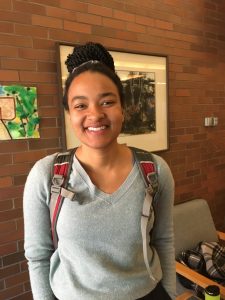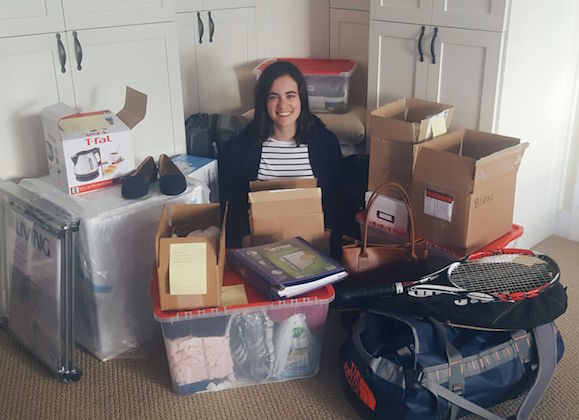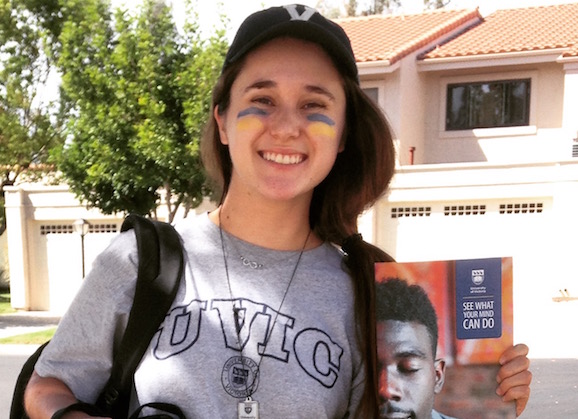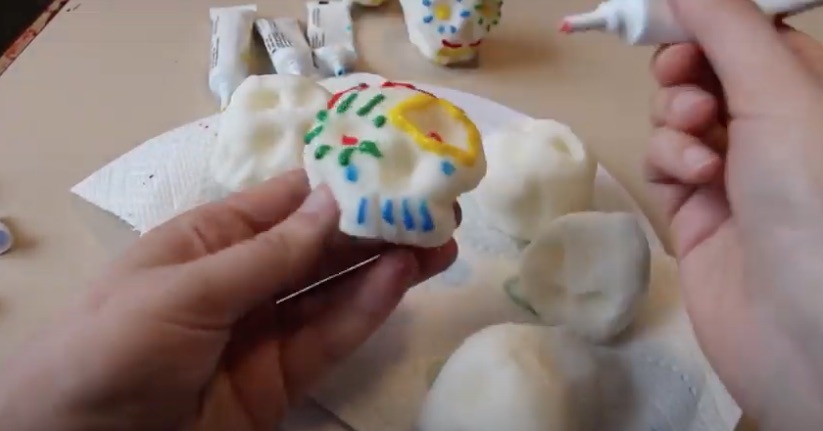Reflections from the JD/JID Program
Hello Friends,
One of remarkable things about being in the first cohort of the JD/JID program — joint degree program in Canadian Common Law (JD) and Indigenous Legal Orders (JID) — is being part of the momentum that drives Indigenous Legal Orders forward.
Walking through the halls and seeing it filled with the second cohort of JD/JID students is empowering. The investment and commitment makes me feel like this isn’t a one-off apparition done in the name of Reconciliation. There is a sense that with each year the program will grow its legs and capacity. So it is with that spirit in mind, I share a conversation that I recently had with one of the 1L students in the JD/JID program. I wanted to see how her experience compared with mine.
Meet Rebekka
 Rebekka hails from just outside Toronto and has moved to Victoria in order to be in the program. She was drawn to the program because she wanted to learn more than Common Law.
Rebekka hails from just outside Toronto and has moved to Victoria in order to be in the program. She was drawn to the program because she wanted to learn more than Common Law.
While these are early days in her legal education, Rebekka is interested in learning more about criminal law and she felt that being immersed in different legal orders will provide her with a more holistic picture of how “justice” is expressed and understood.
The learning curve in your first year of law is steep. In addition to the standard studying strategies and learning how to balance the work load, Rebecca noted that learning how to engage with Indigenous Legal Orders brings with it its own unique challenges.
Rebekka said that she is very much a learner of Indigenous ways of being as her exposure to working with communities came as a volunteer for an Indigenous student support organization when she was an undergrad. We talked about the benefits of being part of a small cohort (25 in mine and 18(!) in hers) and how this enables friendships to develop more readily. Rebekka noted that generally it can feel harder to cultivate friendships when you’re an older student.
As east coast transplants, we commiserated about seeming impossibility of finding a decent place to eat after the early bird special. We also agreed that there is noticeable slower pace of life, which isn’t necessarily a bad thing — it’s just different. Rebekka remarked how having the proximity to the ocean is such a gift. She is right — it is such a gift to live in a place where the land doesn’t provide the backdrop to learning, but is central to that learning.
A Chat with Sam
 After my conversation with Rebekka, I was feeling reflective and spotted Sam sitting in on of the couches that belong in a proctologist’s waiting room, but are instead stationed in the “lounge” (you really must visit one day, I promise you’ll leave depressed).
After my conversation with Rebekka, I was feeling reflective and spotted Sam sitting in on of the couches that belong in a proctologist’s waiting room, but are instead stationed in the “lounge” (you really must visit one day, I promise you’ll leave depressed).
You may remember Sam from a post I wrote last year. I asked him if we could have a chat about how 2L is going and reflections on the year that passed. With a big smile, Sam agreed opened with, “Well, it’s a constant slog” (see I wasn’t joking about the life-sucking ability of the lounge).
He then began to share just a sample of of the things he is involved in. Sam is working with Pro Bono Students Canada on a project on Indigenous land and housing development, he is working on the Appeal Law Journal, he is the LSS Co-Op rep, I am pretty sure he is a tutor, and completed a needless difficult process of OCI (trust me, you don’t even want to know what’s involved) in order to secure an excellent summer position working for a firm in Vancouver. Oh and he’s in law school.
Sam’s life appears all filled up at the moment and I had to ask him what was motivating his zealous approach to extra-curricular life. For Sam, his mindset this year is all about thinking about “what’s next. I am thinking about how do my choices keep open as many doors as possible for future grads of the JD/JID program. For myself the first year was all about building relationships. This year our transsystemic courses focus on the principals of obligations to the people around me and to the wider community. It’s with this spirit that I feel like a message keeper who wants to keep as many doors open as possible for students that come after us. I feel the obligation and responsibility to do my part to ensure that this program is robust and healthy.”
Sam noted that the most pronounced drawback to the stuffed extra-curricular focus is that it “takes me away from here and now.” Sam and I spent some time talking about how having established relationships with our cohort creates a different classroom dynamic than the one we experienced last year. He noted that tricky subjects such as race and colonization are more easily navigated because classmates have a sense of trust between each other.
Sam said that now that he feels that he is “known and understood, folks believe that I come to discussions with good intentions and from a place of respect.” Personally, I think the reason that Sam is enjoying 2L is because his long-term sweetheart is part of the 1L JD/JID cohort. Sam spoke about how lovely it is to have a partner who can understand intimately the good, bad and ugly of law school. He noted that because he regards his fellow law students as future colleagues he is cognizant of how he demonstrates affection and attention in public with his girl. Sam finds that it’s helpful to maintain a sense of professionalism in order for both of them to foster independence which will cultivate different experiences.
How We Lift Each Other Up
I want to mention a really meaningful way that I am supported at school. My friend Katie noticed that I was always (like every single time) late to our contracts class. On average I was missing 40 minutes of class time weekly. I was falling further and further behind.
Now one advantage of having children is that they provide an endless supply of “get out jail card” excuses. Exhibit A: “I am soo sorry I didn’t get to your poetry jam for sad people and the sad people who loved them but my kid puked/pooped their pants/threw a temper tantrum,” any one will do.
But in this case, it’s kind of annoying that I was habitually late because my 4 year and I can’t make the bus in time to get him to day care and me to class by 9am. My other children also slow down the whole morning show too.
Katie offered to drive me on the days we have contracts together. I chuck in on the parking fee and we drop my 4 year off before class. It has made a profound difference. I now feel like I have a fighting chance and this has boosted my confidence. She saw a gap and instead of lamenting the sad state of a mother of 4 in law school, did some concrete work to help level the playing field — and that, my friends, is substantive equality in action! Chi Meegwitch Katie!
Why Am I Here?
 A couple of weeks ago I actually left the Fraser Building and did something else on campus. I attended a screening of a documentary entitled “Why am I Here?”. The screening was held on campus and moderated by Professor Helga Thorson.
A couple of weeks ago I actually left the Fraser Building and did something else on campus. I attended a screening of a documentary entitled “Why am I Here?”. The screening was held on campus and moderated by Professor Helga Thorson.
The documentary is about one of the youngest children who survived the Holocaust. That little 3 year old boy is now a youthful handsome man in his 70s who lives in Victoria.
In the movie, Julius Maslovat recounts how he went about trying to retrace his family’s steps that led to the doors of a concentration camp. By the end of the war Julius was left orphaned and alone in the tenderest time of childhood. He found pieces of his identity in museums, in publicly accessible Red Cross refugee lists, in an old BBC reel. I was struck by how Julius did not own his memory, of how the details of that have provided him with a general understanding of how he came to be exist were found in the public record.
The movie recounts moments when he makes what would ordinarily be considered small breakthroughs, such as coming across a one-second clip of himself as a 3 year old in BBC newsreel, but for him are utterly transformative.
Julian does not have the repository of family memory that is held by grandparents, siblings, parents, aunts and uncles because of course that was taken away from him.
It reminded me of a project that reunited residential school survivors with artwork that they created when they were children at residential school. For many survivors, these pieces of artwork are the only keepsake that they had of childhood.
Our household is inundated with countless pieces of our kids’ artwork, so much so that I have to be more selective than a curator at The Louvre. Contrasted to how tightly Julius and residential school survivors cling to fragmented scraps of their childhood, just cuts to the core. I feel that it must be tremendously difficult (and in turn courageous) to reconcile a public atrocity with the innately personal pain of being subjected to that atrocity.
Julius was present to answer questions at the end of the movie. He found the answer to the title of the movie “Why am I Here?” in the work of German philosopher Friedrich Nietzche (which feels a bit ironic), who wrote “if you can a why to live, you will find a way to live.” Thankfully for us, Julius has found that why.



